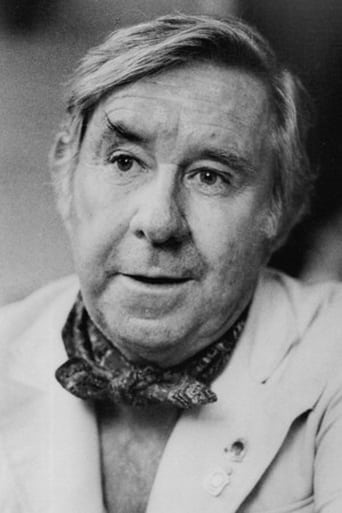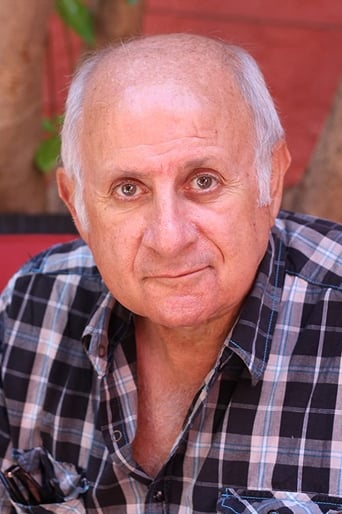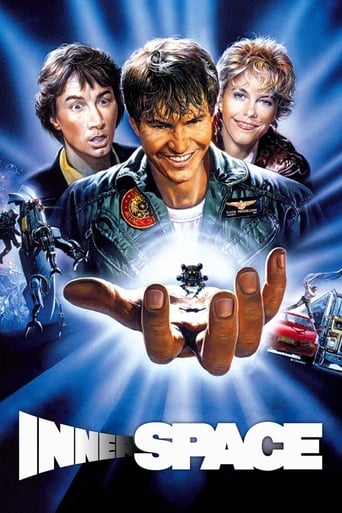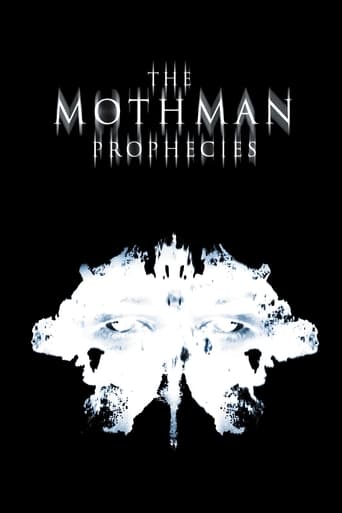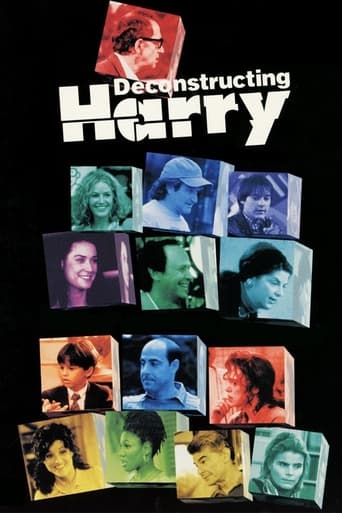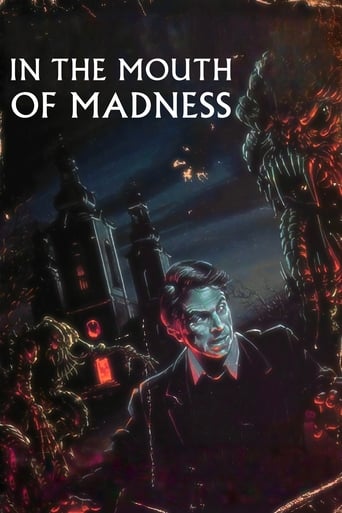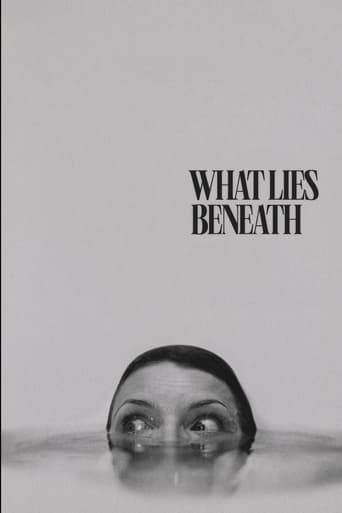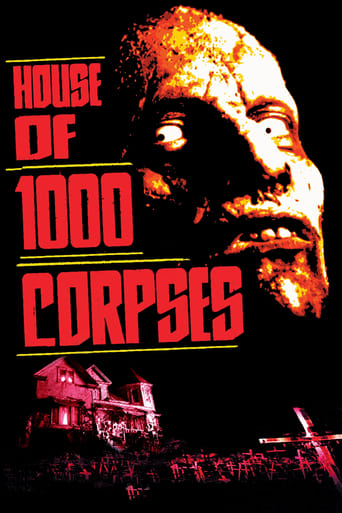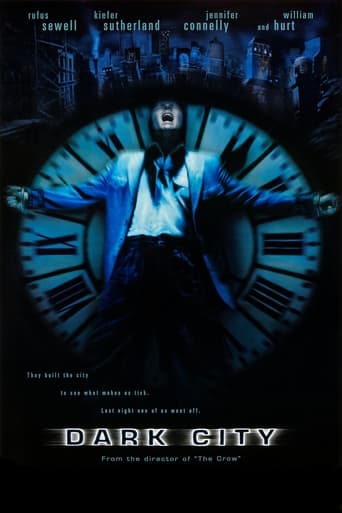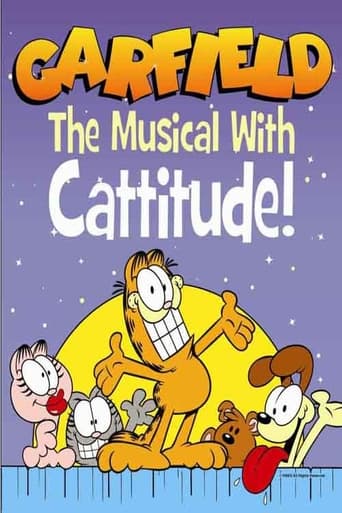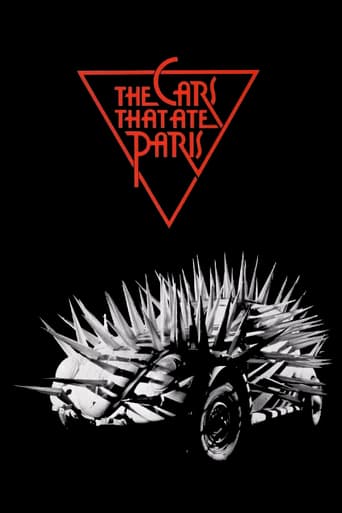
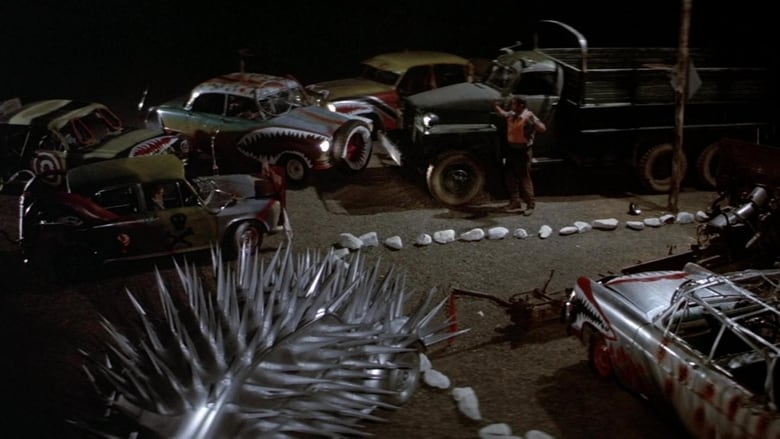
The Cars That Ate Paris (1976)
After the death of his brother on the road, unemployed and unstable drifter Arthur Waldo stays for a while in the rural Australian town of Paris as the guest of the mayor, who hopes he will become a permanent member of the Paris population. Arthur soon realizes the quaint hamlet has a sinister secret: they orchestrate car accidents and rob the victims. Survivors are brought to the local hospital, lobotomized, and used for a local doctor's experiments.
Watch Trailer
Cast
Similar titles
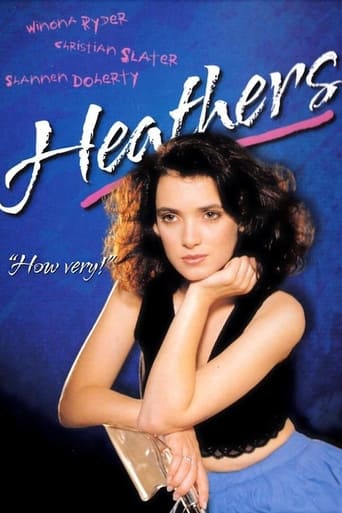
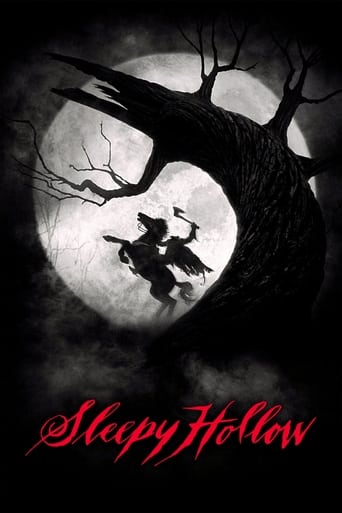
Reviews
Purely Joyful Movie!
best movie i've ever seen.
A Disappointing Continuation
In truth, there is barely enough story here to make a film.
I wasn't surprised to read that distributors didn't know whether to market "The Cars that Ate Paris" as a horror movie or an art movie. I don't really know what to make of it. Its fundamentally disturbing premise - a town in which the residents engineer car "accidents" and scavenge the remains - is handled so sedately it barely even registers. There is also a more serious social issue that the movie deals with about the battle between the young and the old. Any Australian is familiar with the term "hoon" and knows that these are usually young men. The movie does next to nothing with this premise either.Its hard to think that anyone who went to see "The Cars that Ate Paris" - and certainly no one in the US who saw it as the even more misleadingly titled "The Cars that Eat People" - would have come away satisfied. It resolutely refuses to be of interest in any way, shape or form. Want horror? There's no tension and the only "shock" comes from photos of the results of grisly car crashes. Want art? The movie is shot fairly interestingly, just without anything interesting within the shots. Want cars, even weird looking cars, like the ones featured on the poster? The only car related action the movie really features happens in the final ten minutes.Like I said, there's not really a whole lot to like here.
A man and his brother are involved in an accident deliberately caused by the residents of a hellish little town, Paris, New South Wales. The surviving brother doesn't realize that the accident was deliberate and oddly the town's weirdo residents decide to keep him and make him a part of their community. I have no idea why they didn't just kill him. Regardless, during his stay he begins to see how bizarre this town is, with young people driving around like extras from the Mad Max movies and a lot of mindless violence late in the film--violence that really looked as if the filmmakers didn't quite know what to do with the story.When "The Cars That Ate Paris" debuted, a lot of folks were upset because they found the film so bloody and gross. Well, today you certainly wouldn't think that, as times have certainly changed. Instead, you might be more likely to have folks react as I did-- with a surprising amount of boredom. While the idea is pretty radical and sounds exciting, it somehow isn't due to very slow pacing and a story that fails to capitalize on the great idea. Watch it if you'd like...just don't be too surprised when you find the whole thing a bit ponderous. The only thing I really liked in this film was the spiky VW. Where can I get one of those?!
Pulling quite a switcheroo on audiences, The Cars That Ate Paris is a film that it is best to be clear about before viewing. This emphatically isn't a crazed barrage of vehicular madness, nor is it set in France. With the goods that the title foretells kept mostly to the final 15 minutes, this is mostly a humorously macabre look at a strange community, an isolated Australian town where mans relationship with the automobile has left what passes for humanity in very much a subservient role. Our nominal hero is Arthur Waldo, survivor of a car crash that kills his brother and newcomer to the quiet community of Paris, whose mayor takes a shine to him. Arthur unfortunately is afraid of cars though, especially where accidents are involved, and his worries begin to get the best of him, not ideal in a place whose economy and source of new citizens comes from cars and car accidents. Plus the youth of Paris are getting restless With a passive hero and minimal exposition director Peter Weir creates a fascinating and at times disturbing tale, he shows the audience enough to grasp the situation whilst leaving them plenty of intriguing blanks to fill in. He has a great eye for the town, unhurried shots capture neat exteriors, scenes are often largely still and uncluttered, townsfolk quietly going about their business, the presentation gives an ordinary feel that renders the emphasis on cars all the more alluringly strange. We see men, women and children involved, there is a minimum of "regular" conversation, people passing the time of day and such, the whole place is portrayed in powerfully off-balance yet mostly subtle fashion, enhanced by the frequent glimpses or outright gazes at the beautiful surrounding landscape or the sky above. There is some idea of why the town is the way it is from its isolation, but in such a wonderful place, the dark turn they have taken is all the more unsettling. Equally effective if not so detailed treatment is given to the characters here, though most tend to pop in and out without great screen time they make an impression and importantly, come across as organic to the setting. There's Arthur, played dazed and confused by Terry Camilleri, rolling with the punches of his situation, making the best of things whilst conveying constant disturbance, not the most sympathetic of protagonists but does a good job of keeping the audience on their toes. He also handles his personal arc rather well, giving the climax quite a punch. Then there's sinister and mysterious Dr. Midland, creepily essayed by Kevin Miles and Bruce Spence as the aggressive and gallows humoured Charlie. Best of all is The Mayor, a terrific turn from John Meillon. Smoothly menacing, Meillon channels all notions of cheerfully malign authority figures into one outback gentleman, electric stuff and the films greatest boon. The film perhaps lacks a little in forward momentum, scenes pile on top of each other and the course of things is a little random, a little arbitrary. Also, in taking the oblique approach to its goings on the film collects up a number of interesting themes and ideas that aren't really explored to their best advantage. Still, I found this to be a near constantly interesting, often unsettling and ultimately powerful work, well recommended to fans of Australian and cult cinema.
This truly odd and eccentric black comedy is especially worth checking out in order to notice how drastically Peter Weir's filming style changed from dared and out-of-the-ordinary cult in the 1970's to dull and politically correct rubbish in the 1980's, 1990's and 2000's. No matter how popular and acclaimed films like "Dead Poets Society", "Master & Commander" and "The Truman Show" are, they're blunt compared to the uniqueness and virility of "The Cars that Ate Paris". At least this film doesn't feature tiresome morality speeches and here the dialogues are, in fact, surprisingly controversial most of the time. For example; when explaining to total strangers that you accidentally killed a old man by accidentally running your car over him, do you expect them to reply with: "Yeah, those old pedestrians are a real problem, aren't they?" Welcome to Paris; a remote little outback Australian town where the people go to church, love their families and where the economy entirely thrives on one thing: car crashes! The whole town assists in deliberately causing accidents and then use the parts and accessories as currency to buy stuff in the shops. The outsiders from the accidents either end up in the graveyard, as medical guinea pigs in the local hospital or as in protagonist Arthur Waldo's case as brand new residents of Paris and close friends to the mayor. It's truly close to brilliant how Peter Weir manages to sustain the friendly and nonthreatening tone throughout the whole movie. All members of the community are basically insane psychopaths, yet you symphatize with them a lot more because the "hero" (Arthur) is such an antipathetic loser and the young generation (that eventually revolts against the town's ancient habits) are boisterous and uncanny freaks. Even the mayor, who's really the evil mastermind, is portrayed like a jolly figure with whom you'd love to chat. I know that most people wish to forget their viewing of "The Cars that Ate Paris" because it moves slow and looks dark, but the basic premise really is one of the best horror ideas ever coming from Australian cinema. And that WV Beetle covered in spikes is a highly memorable piece of scenery!
